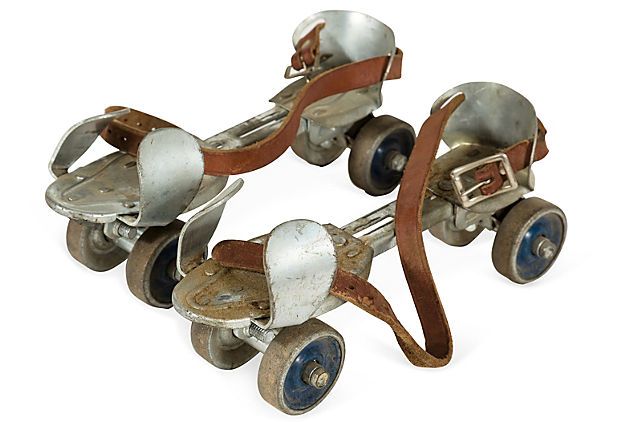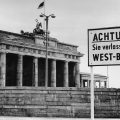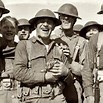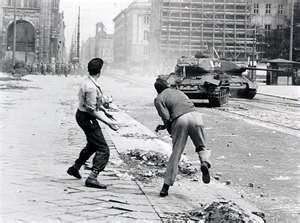Things That Disappear
The pale yellow “favorite blanket” that you had as a child. The hair dryer that covered your head like a shower cap and plugged into the wall. The wood paneled station wagon your parents drove with four-on-the-floor and bucket seats. Summer vacations spent dozing on the back seat of this station wagon as your father captained it through Maine or Upstate New York or Canada.
The years. The years that used to seem cavernous, but then started shrinking. The countries that you visited which no longer exist. Buildings you used to work in: the trailer at the quarry, the department store they razed to build something bigger, the World Trade Center. Tower One.
Things that disappear…
I recently read a book with this title, a German book called Dinge die Verschwinden. Some of you out there who keep current with the latest books might recognize the author’s name, Jenny Erpenbeck. Her novel Kairos was released in America last month. Kairos is long, fraught, and Americans hoping for a happy ending will be disappointed. Dinge die Verschwinden is a slim volume of short essays, the longest no more than a few pages.
Erpenbeck’s list of the disappeared ranges from the concrete to the abstract, from the tiny to the enormous, from things that are specific to a life lived in a certain place in a certain time to things that all of us can relate to, like traditions, old friends, and the toys and sacred objects of our youth.
Erpenbeck is uniquely placed to muse upon things that have disappeared. Born in East Germany, her entire country ceased to exist in 1989. There are those who say we shouldn’t mourn East Germany, that its demise was a good thing, but try to imagine what it was like for the people who lived there. Imagine how it might feel if every institution (however flawed), every association or credential, every given that you had built your life upon was suddenly tossed up into the air one night and came down in a heap of broken bric-a-brac and shards of glass?
Some of the things that disappeared for Erpenbeck were the empty spaces of East Berlin, the spaces the Socialist government didn’t have the money to fill with glitzy high rises, or the spaces along the dismantled Wall where goats grazed for a time, and where one of the traveling circuses used to pasture their horses. Products she had grown up with disappeared, products that were made in East Germany or Czechoslovakia, and were perfectly serviceable, but that were overwhelmed by the sudden avalanche of shinier, Western goods after the German Reunification. Cars that Erpenbeck had driven vanished, the old Trabants and Wartburgs, cars that had gotten her from A to B, but that weren’t designed to satisfy anyone’s fantasy of adventure or lust for speed. The names of the streets she walked changed, streets that had honored the old Socialist heroes, but that after “the Change” were given their old names back. Finally, the border between the two Germanies evaporated, the border that was “the Wall,” and then suddenly was nothing.
Unlike Erpenbeck, I haven’t lost my country overnight although there are days when I’m not sure I recognize her. Americans, too, now have a Wall, or parts of one, and the northern border, the one we used to drive over without passports or paperwork, is much more difficult to pass.
Products have disappeared here as well: metal skates that strapped on, phones that plugged into walls, television sets that we had to stand up and walk over to if we wanted to change the channel. The old cars are gone, the ones that had ashtrays, whose locks froze in winter, and whose seats weren’t heated.
The spaces around us have also filled in. Every day a new house sits where only a few months ago there was grass or trees. Roads cut through forests, air plane hangars rise up over hills. I can remember when the local mall was a pumpkin field, when a meadow near my home in Connecticut was full of cows and not McMansions, and when the six lane highway they built behind my childhood home on Long Island was woods with a stream running through it.
I can remember summers when I didn’t have to shelter from the heat or the smoke from wild fires thousands of miles away, summers when I could lie in the grass and not worry about going into the bushes because I was afraid of being bitten by a tick. I can remember elections that weren’t disputed and presidential debates that were cordial.
I long for the days of those undisputed elections, and I’m worried about our environment as well as the direction our politics is taking, but, in general, remembering the things that have disappeared makes me feel good. It fills me with a sense of wonder.
Wonder at all the people I met, at the friends I made, and the places I lived in or visited. Wonder at all the students I helped, or laughed with, or worried over. Wonder at all the books I read and the stories I listened to. Wonder at all the adventures I had. Making hay in a Finnish field, picnicking on the cliffs above the Volga, running down a street with a friend in Stockholm on a white summer’s night.
Am I being selfish? Retreating into memories of the life that I’ve lived instead of focusing on the here-and-now? I think about the here-and-now. I tremble for it. But the vicissitudes of the present and my worries for our future make me treasure my past all the more, the six decades of life that I’ve lived, the things that have disappeared.






I absolutely love this, Linda. I completely empathize with it. I’m amazed too at how so much has changed, and also at my memories — so rich and adventurous — unimaginable in the world we’re in now.
My favorite of all your Strange Countries posts!!
Excellent! You’re not being selfish, Linda. There’s not a lot to rejoice about in the here and now. I feel badly about the next generation who will not be as lucky as our generation was.
Very touching, Linda, I can relate closely with your experiences.
I have always admired your writing skills Linda, your true to life experiences provoke great emotion in me. The trajectory of the world cannot be changed.
What we do as individuals while we are here to impact someone’s life in a positive spin, should be our pursuit.
“I love one another as I have loved you”.
Thank you, Paul! What a lovely sentiment.